External links
- Oral History Interview with George Esser from Oral Histories of the American South
- Finding Aid: Billy E. Barnes Photographic Collection, 1959-1996, in the North Carolina Collection Photographic Archives, UNC-Chapel Hill
George Hyndman Esser Jr. (born c. 1921 in Norton, Virginia - died November 5, 2006 in Chapel Hill, North Carolina) was an American civil rights advocate who led the North Carolina Fund at the request of then-governor Terry Sanford in the 1960s.
After law school, he joined the Institute of Government at the University of North Carolina at Chapel Hill.
In 1963 Sanford asked Esser to run NC Fund, which in its five years established community action agencies across the state.
He brought Nathan T. Garrett to the NC Fund, and Garrett later founded he Foundation for Community Development.
Esser later was a program adviser for the Ford Foundation, executive director of the Southern Regional Council in Atlanta and executive director of the National Academy of Public Administration in Washington, D.C.
He received the North Carolina Philanthropy Award in 1995.
The U.S. state of North Carolina is known particularly for its history of old-time music. Many recordings were made in the early 20th century by folk song collector Bascom Lamar Lunsford. Influential North Carolina country musicians like the North Carolina Ramblers and Al Hopkins helped solidify the sound of country music in the late 1920s, while influential bluegrass musicians such as Earl Scruggs and Doc Watson came from North Carolina. Arthur Smith had the first nationally syndicated television program which featured country music. He composed "Guitar Boogie", the all-time best selling guitar instrumental, and "Dueling Banjos", the all-time best selling banjo composition. Country artist Eric Church from the Hickory area, has had multiple No. 1 albums on the Billboard 200, including Chief in 2011. Both North and South Carolina are a hotbed for traditional country blues, especially the style known as the Piedmont blues. Elizabeth Cotten, from Chapel Hill, was active in the American folk music revival.
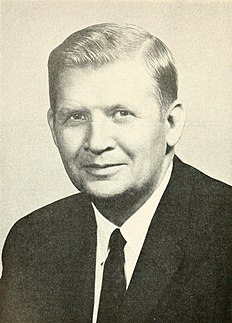
James Terry Sanford was an American lawyer and politician from North Carolina. A member of the Democratic Party, Sanford was the 65th governor of North Carolina (1961–1965), a two-time U.S. presidential candidate in the 1970s and a U.S. senator (1986–1993). Sanford was a strong proponent of public education and introduced a number of reforms and new programs in North Carolina's schools and institutions of higher education as the state's governor, increasing funding for education and establishing the North Carolina Fund. From 1969 to 1985, Sanford was President of Duke University.
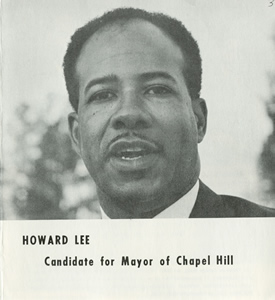
Howard Nathaniel Lee is an American politician who served as Mayor of Chapel Hill, North Carolina, from 1969 to 1975. He was the first African-American mayor elected in Chapel Hill, and the first African American to be elected mayor of any majority-white city in the South.

Woody Lombardi Durham was an American play-by-play radio announcer for the North Carolina Tar Heels football and men’s basketball programs from 1971 to 2011.
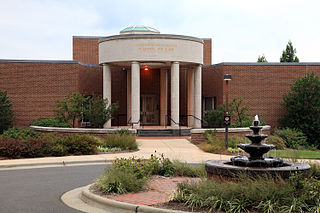
The University of North Carolina School of Law is a professional school within the University of North Carolina at Chapel Hill. Established in 1845, Carolina Law is among the oldest law schools in the United States and is the oldest law school in North Carolina.

The North Carolina Community College System is a statewide network of 58 public community colleges. The system enrolls over 500,000 students annually. It also provides the North Carolina Learning Object Repository as a central location to manage, collect, contribute, and share digital learning resources for use in traditional or distance learning environments.
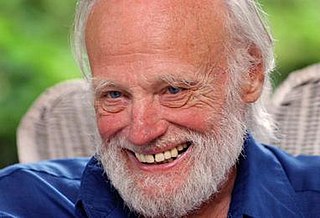
John Marsden Ehle, Jr. was an American writer known best for his fiction set in the Appalachian Mountains of the American South. He has been described as "the father of Appalachian literature".
The North Carolina Fund was a series of experimental programs conceived at the request of North Carolina governor Terry Sanford, who was aided by writer John Ehle. Its director, George Esser, was appointed in 1963. It was created as a non-profit corporation to operate for five years only, with a mandate to create experimental projects in education, health, job training, housing, and community development.
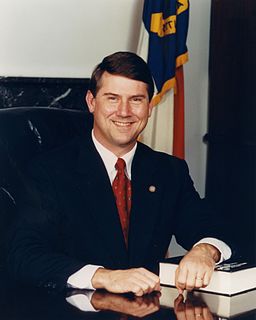
Dennis Alvin Wicker is an American lawyer and politician from Sanford who served as a member of the North Carolina House of Representatives (1981–1993), and as the 31st Lieutenant Governor of North Carolina (1993–2001). As lieutenant governor, he became the first statewide elected official to chair the State Board of Community Colleges, which sets policy for the state's 58-campus system. Wicker was also a member of the North Carolina State Board of Education and the State Board of Economic Development.

The Southern Oral History Program (SOHP), located in the Love House and Hutchins Forum in the historic district of Chapel Hill, North Carolina, is a research institution dedicated to collecting and preserving oral histories from across the southern United States.
Jacquelyn Dowd Hall is an American historian and Julia Cherry Spruill Professor Emerita at the University of North Carolina at Chapel Hill. Her scholarship and teaching forwarded the emergence of U.S. women's history in the 1960s and 1970s, helped to inspire new research on Southern labor history and the long civil rights movement, and encouraged the use of oral history sources in historical research. She is the author of Revolt Against Chivalry: Jessie Daniel Ames and the Women’s Campaign Against Lynching;Like a Family: The Making of a Southern Cotton Mill World and Sisters and Rebels: The Struggle for the Soul of America.
John Sprunt Hill was a North Carolina lawyer, banker and philanthropist who played a fundamental role in the civic and social development of Durham, North Carolina, the expansion of the University of North Carolina at Chapel Hill and the development of rural credit unions in North Carolina during the first half of the 20th century.

The Educational Foundation, Inc., better known as The Rams Club is the athletic booster club and scholarship organization of the North Carolina Tar Heels at the University of North Carolina at Chapel Hill. The Rams Club was founded on December 7, 1938 and has approximately 17,000 members as of November, 2019. It is based at the Williamson Athletics Center, located next to the Dean E. Smith Center, named for former executive director Ernie Williamson.
Operation Breakthrough, an anti-poverty movement, was established in Durham, North Carolina in August 1964. It played a prominent and influential role in the expansion of the Civil Rights Movement in Durham. Terry Sanford, its founder, managed to develop that through the help and involvement of the North Carolina Fund. A Member of the Democratic Party, Sanford was the former governor of North Carolina and was highly respected for his intervention in the improvement of public education. Indeed, in the 1960s, the education system in place in North Carolina was very poor as one quarter of the adults above 25 years old had received an education inferior to sixth grade, making most of them illiterate.2 Because of the high success of the program, the concept developed through the North Carolina Fund was mimicked throughout the nation, transforming what initially was a state wide program to a national program. Throughout this movement, activism played a fundamental role as the main aim of the program consisted in changing the economic situation of a state through the use of political and social power.
Dr. Howard Fuller is a civil rights activist, education reform advocate, and academic. He is best known for the community organizing work he did in Durham, North Carolina as an employee of Operation Breakthrough, and as a co-founder of the Malcolm X Liberation University in 1969. In the 1970s, Fuller adopted the name Owusu Sadaukai, organized several national African Liberation Day celebrations, and was one of the foremost advocates of Pan-Africanism in the United States. Decades later, Fuller rose again to national prominence as one of the leading advocates for school vouchers. He served as the superintendent of Milwaukee Public Schools from 1991-1995 and is currently a distinguished professor of education, and founder/director of the Institute for the Transformation of Learning at Marquette University in Milwaukee, Wisconsin.
The Carolina Times was an American, English-language weekly newspaper published in Durham, North Carolina, United States, founded in 1919 or 1921. It ceased publication in 2020.

The North Carolina Collection is the largest collection of traditional library materials documenting a single state. It is part of the Louis Round Wilson Special Collections Library at the University of North Carolina at Chapel Hill. The origins of the collection began in 1844 with the creation of the North Carolina Historical Society. The collection formally came into existence after a donation from John Sprunt Hill in 1930 totaling $25,000. The collection includes The Thomas Wolfe Collection and The Sir Walter Raleigh Collection.

Stephen M. Schewel is an American politician, businessman, and academic. A Democrat, he is the former Mayor of Durham, North Carolina and formerly served on the Durham City Council and as the Vice Chair of the Durham Public School Board. Schewel is also a faculty member at Duke University's Sanford School of Public Policy and a former faculty member at North Carolina Central University. He founded the weekly newspaper Indy Week in 1983, and served as its president until he sold the paper in 2012. In 2010 he co-founded the Hopscotch Music Festival.
Jeanelle Coulter Moore was an American schoolteacher, patron of the arts, and civic leader who, as the wife of Governor Dan K. Moore, served as the First Lady of North Carolina from 1965 to 1969. She was the first wife of a governor in North Carolina to have a full-time secretary and maintain her own office in the North Carolina Executive Mansion, and she served as president of the Sir Walter Cabinet while her husband was in office. She was responsible for the creation of the Executive Mansion Fine Arts Committee within the North Carolina Department of Natural and Cultural Resources, which provides funding to restore and decorate the official residence, and established a chapel at the Raleigh Correctional Center for Women. Prior to her time as first lady, Moore served as a board member of the North Carolina Fund and of the North Carolina School of the Arts, having been appointed by Governor Terry Sanford. In 1980 she received the North Carolina Award for Public service.

Margaret Rose Sanford was an American civic leader, teacher, and philanthropist who, as the wife of Terry Sanford, served as First Lady of North Carolina from 1961 to 1965. Prior to entering public life, she worked as a teacher in North Carolina and Kentucky. As first lady, Sanford hosted the first annual North Carolina Symphony Ball in 1961, established a library of North Carolinian books at the North Carolina Executive Mansion, and planted a rose garden on the mansion's grounds. She was the first governor's wife to decorate the Governor's Western Residence in Asheville. Sanford sent her children to the first racially integrated public elementary school in Raleigh, North Carolina while the family lived in the executive mansion. She served on the board of the Methodist Home for Children, the North Carolina School of the Arts, the Stagville Plantation Restoration Board, and East Carolina University. She was also a member of the Education Commission of the States and the Defense Department Advisory Committee on Women in the Services. While Sanford's husband served as president of Duke University, she was appointed by Governor Jim Hunt to serve on a delegation of university faculty and administrators to China in 1975.